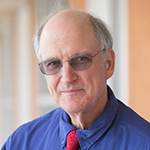The Fluid Catalytic Cracking (FCC) unit has long been the “heart of the refinery” and is the primary conversion process in most refineries. Over the years the FCC unit has shown flexibility to reinvent itself multiple times in response to changing market conditions, evolving from a gasoline producer and volume expansion unit, to an octane barrel producer, to a residue conversion option, to a valuable piece of the puzzle in addressing increased middle distillate demand, to a producer pf feedstocks for petrochemicals and further clean fuel production processes such as alkylation.
You Will Learn
An awareness and understanding of FCC process and catalyst fundamentals, exposure to the various unit process design differences for FCC, RFCC, and High Olefin FCC (HOFCC), and a summary of new technology developments from process licensors, equipment suppliers, and catalyst and additive suppliers.
- Introduction to the FCCU and History of Development
- Process Flow
- FCCU Process Differences
- Cracking Reaction Chemistry
- Heat Balance
- Pressure Balance
- Feed Properties and Operating Variables
- Key Equipment
- FCC Catalyst and Additive Fundamentals
- Understanding Equilibrium Catalyst Data
- Catalyst Selection and Testing
- Operating and Reliability Issues
- Resid FCC
- Yield Flexibility
- Fluidization Issues
- New Technology Developments
Who Should Attend
Unit operators and supervisors, refinery plant engineers, technical service and process engineers, both experienced and new to the FCC.
FCC equipment and process licensors, and service providers who want a better understanding of the FCC process can also benefit.
Prerequisites
An understanding of refining processes and petroleum refinery terminology is expected, having some experience with the FCC unit is helpful.
Your Instructor
 Joe McLean, Vice President in Catalyst Consulting for the Houston – based Astron International, Inc. Joe has more than 40 years of refining experience, including twenty-seven years in the fluid catalytic cracking unit (FCCU) while working for BASF. Joe joined BASF (formerly Engelhard) in 1987, holding positions in R&D, sales, technical service, marketing, and business development. His final position was as Global Technology Manager for Refining Catalysts, where he worked with refiners worldwide to implement BASF’s catalyst technologies. Prior to joining BASF, Joe held positions in process development, engineering, and program management with ARCO, Research-Cottrell, and Hydrocarbon Research, Inc.
Joe McLean, Vice President in Catalyst Consulting for the Houston – based Astron International, Inc. Joe has more than 40 years of refining experience, including twenty-seven years in the fluid catalytic cracking unit (FCCU) while working for BASF. Joe joined BASF (formerly Engelhard) in 1987, holding positions in R&D, sales, technical service, marketing, and business development. His final position was as Global Technology Manager for Refining Catalysts, where he worked with refiners worldwide to implement BASF’s catalyst technologies. Prior to joining BASF, Joe held positions in process development, engineering, and program management with ARCO, Research-Cottrell, and Hydrocarbon Research, Inc.






